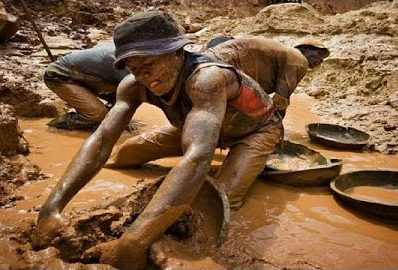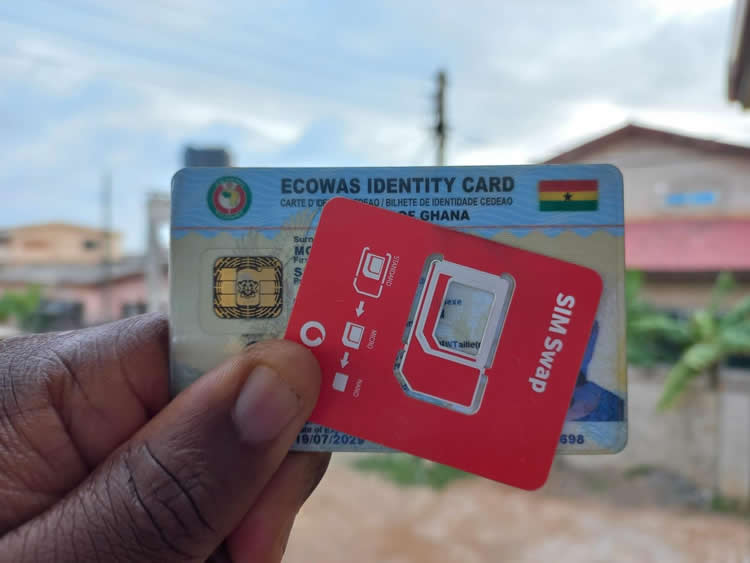Galamsey Still Affecting Ghana’s Cocoa Production
- Home
- Galamsey Still Affecting Ghana’s Cocoa Production

Galamsey Still Affecting Ghana’s Cocoa Production
 Ghana is second, only to Côte d’Ivoire, in global production of cocoa – a major foreign exchange commodity, and important ingredient in the confectionery, food and beverage, pharmaceutical and cosmetics industries.
Ghana is second, only to Côte d’Ivoire, in global production of cocoa – a major foreign exchange commodity, and important ingredient in the confectionery, food and beverage, pharmaceutical and cosmetics industries.
The two West African countries (Ghana and Côte d’Ivoire) jointly account for two thirds of the global cocoa production.
Ghana produced a record 1.033 million tonnes of cocoa for the 2020/2021 season, an improvement on the previous record of 1.024 million tonnes in the 2010/2011 season.
The Seed Production Division (SPD) of the Ghana Cocoa Board (COCOBOD) says they are poised to increase the country’s production capacity with more disease resistant and high yielding capacity hybrid cocoa seedlings.
It is, therefore, raising 140 million hybrid cocoa seedlings across all cocoa growing regions in the country. The seedlings bear fruits in about one and half to two years, compared to the non-hybrid cocoa, which has about five to six years fruiting period.
However, the country’s quest to increase its production level is being affected by illegal mining activities (galamsey) in cocoa growing areas across the country, despite the Government’s efforts to stop such activities.
The Ghana News Agency observed during a visit to some cocoa stations at Apedwa, Bonsu, and New Tafo in the Eastern Region that the Birim River, one of the main tributaries of the Pra River, used for irrigation, had been polluted.
Although there were neither people nor mining equipment on site, the colour of the River is milky-brown, indicating that illegal mining activities are ongoing in the Birim River.
Ghana’s forest cover is depleted, with only 20 percent remaining. This is because the 8,200,000 hectares of forest cover that the country had around 1900 has reduced to 1,600,000 hectares due to destruction.
A 2020 study by the Institute of Environment and Sanitation Studies of the University of Ghana also observed that the country has lost more than GH₵36 billion (US$6.3 billion) to environmental degradation.
Activities that has contributed to this degradation include illegal mining, sand winning and indiscriminate felling of trees for building purposes.
Mr Kwesi Asante, a cocoa farmer at Asiakwa in the Eastern Region told the Ghana News Agency in an interview that the issue of illegal mining was affecting farming, with many of the rivers, polluted.
He said: “Frankly, water to work with on our farms is a challenge. So, many of us have resorted to irrigation to water the crops in our farms. But the rivers we use, including Birim, Pusu, Supong, have all been destroyed through galamsey.”
“We, therefore, buy water and take to our farms to water the crops, and at the end of the crop season, the money you invest in far more than the income from the produce,” Mr Asante said.
Mrs Faustine Asemany, the Executive Director of the Seed Production Division (SPD) of the Ghana Cocoa Board (COCOBOD), confirmed to GNA that the pollution of rivers and other water bodies was not peculiar to the Eastern Region.
She indicated that almost every other cocoa growing region was increasingly recording high concentration of mercury in water bodies used for irrigation purposes.
The situation, she said was impeding the effort of many farmers across the country to increase their yields, and rather, increasing their production cost, despite efforts by the Government to clamp down on illegal mining.
Mrs Asemany said: “In Bunso, we built power horses (water pumps) in one of the plots, and started using the Birim River to irrigate our plots, but because of the galamsey pollution of this river, we can no longer use it.”
The Executive Director added that in Toase, in the Ashanti Region, the Division could not use a suitable river it identified for irrigation purposes also because the mercury concentration was very high.
“We’re doing irrigation; we were using natural water (rainfall) to feed our seed gardens that supported us, but the climatic conditions are changing and it’s affecting our crop production as well in that you can produce those pods. Many of the cherelle (young cocoa fruit) also ripe without maturing, and in these galamsey areas, we’re unable to tap into rivers to irrigate our seed gardens,” she said.
She said that because of the illegal mining activities, they often avoided some areas that would have been used to raise seedlings, forcing farmers to also move longer distances before they could access water to work on their farms.
“Sometimes, we’re forced to drill boreholes and fetch water from there to water the seedlings. The underground water too, we drill and we don’t get adequate water,” she stated.
Adding to this, Dr Alex Oppong Dwapanyin, Regional Manager for Eastern, Volta and Oti Regions, COCOBOD, said, the situation had compounded the plight of farmers, making them incur high transportation cost.
He noted that the effort of the Seed Production Division in providing hybrid and high yielding seedlings to farmers to increase production would be derailed if immediate and concrete steps were not taken to address the issue.
Mr Edward Kareweh, General Secretary of the Agriculture Workers Union of Ghana (GAWU), explained the mud-yellowish water that illegal mining turned rivers and water bodies into, were not good for irrigation and even domestic and commercial use.
He indicated that while the Government was combating illegal mining activities, the Chiefs and community members ought to realise the importance of joining forces with relevant stakeholders to protect the water bodies.
“Much as the Government is fighting it (galamsey) the Chiefs and people of the communities in which galamsey is done also have a responsibility to rise up and stop the type of prospecting and mining gold that pollutes the waters,” he said.
Meanwhile, Mr Abraham Otabil, Public Relations Officer, Ministry of Lands and Natural Resources, told GNA that the Ministry, was ensuring that people did not carry out mining activities close to water bodies.
He said: “The Birim River is one of the big rivers in the country, so, the Ministry, together with the respective collaborators, including the Water Resources Commission, Ministry of Water and Sanitation, and Local Government Ministry, have been working to ensure that we protect the water bodies and forest reserves where we have many of these cocoa farms around.”
Mr Otabil added that the Ministry, under the Alternative Livelihood Programme was engaging the youth fashion design, oil palm plantation, and other productive ventures to provide decent jobs for them.
The exercise is being carried out in various mining districts to ensure that miners do not return to various sites, and cause further pollution to rivers and other water bodies for irrigation and other purposes.
While the Seed Production Division of COCOBOD is making available disease-resistant and high yielding seedlings to farmers to increase the country’s crop yield, it is important to pay attention to “galamsey” activities to make the country’s dream of being the largest producer of cocoa be realised.
The chiefs and people of cocoa and mining communities must form strong collaboration with government and non-state actors to safeguard water bodies for irrigation purposes.
Farmers must also ensure that they adhere to good agronomic practices, including constant weeding, spraying of farms on time and with appropriate chemicals, and controlling pests and diseases with support from agric extension officers.
These, together with financial support and the implementation of policies, would help stem the challenges, leading to the production of quality beans and increasing the country’s crop yield.
By Francis Ntow
Source: GNA
- Share
Classic Ghana
Classic Ghana brings you into a fun world of arts, entertainment, fashion, beauty, photography, culture and all things in between. Let’s explore these together!







